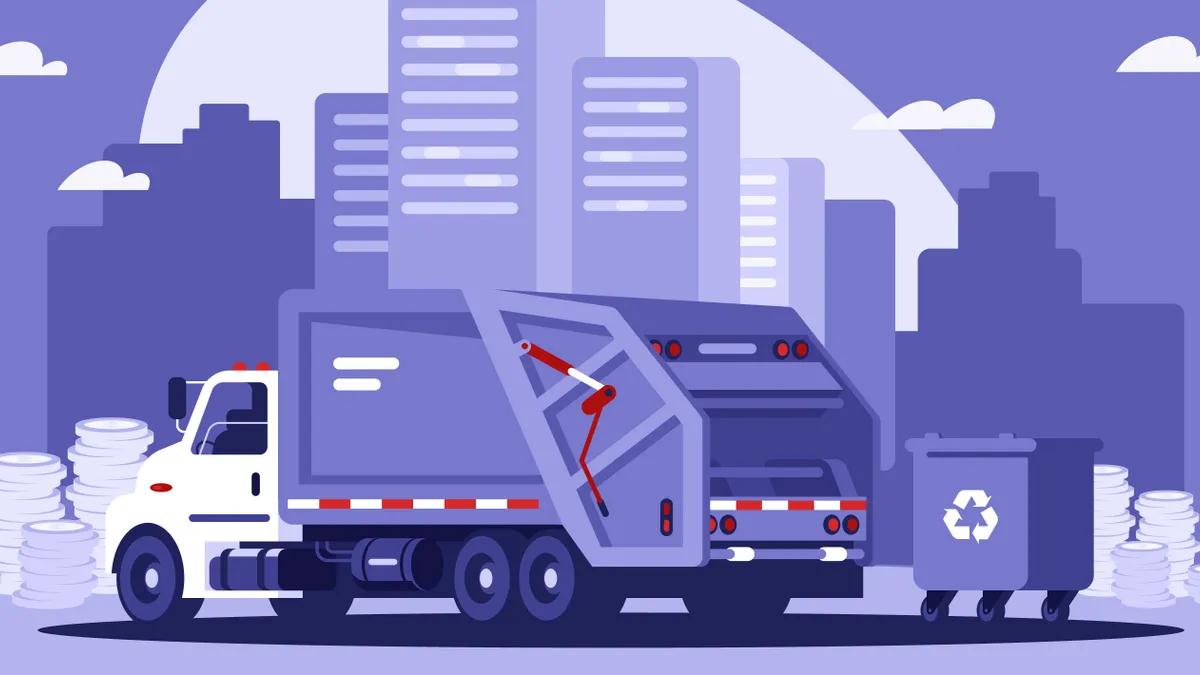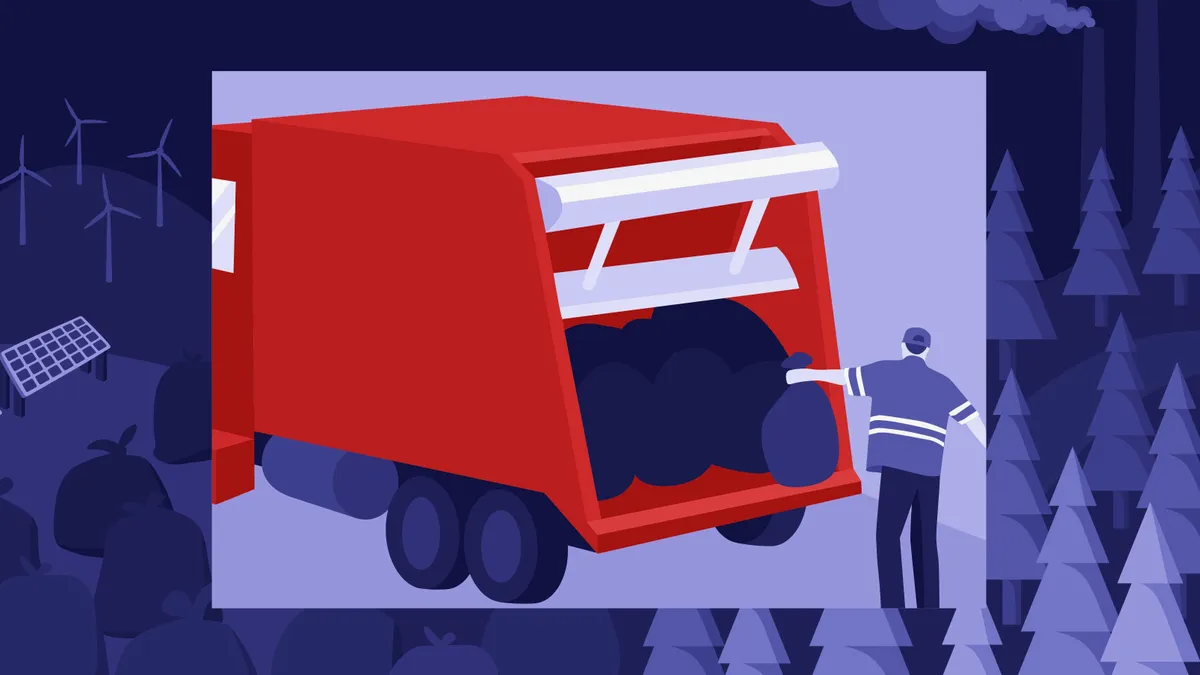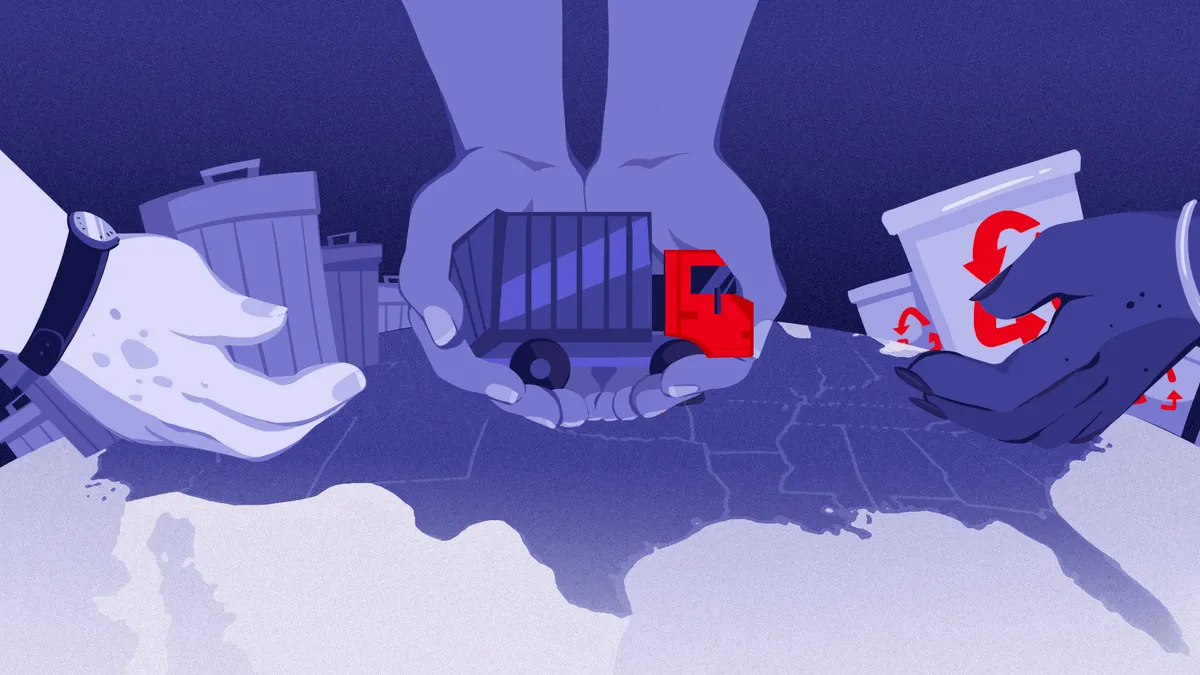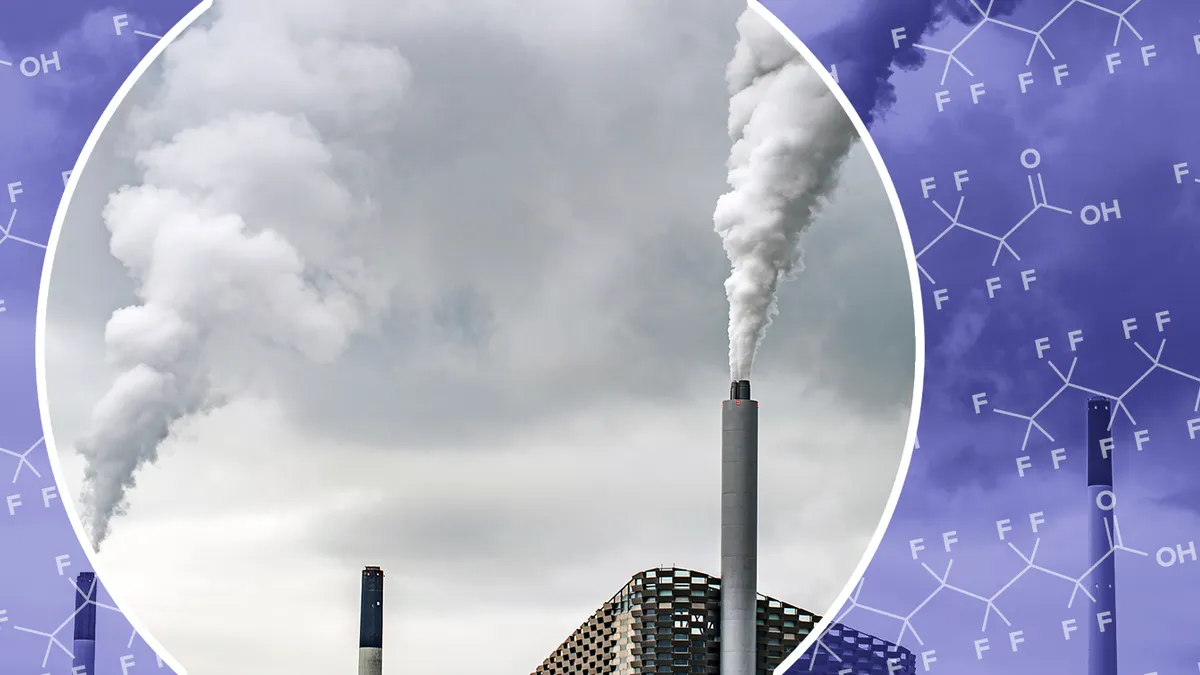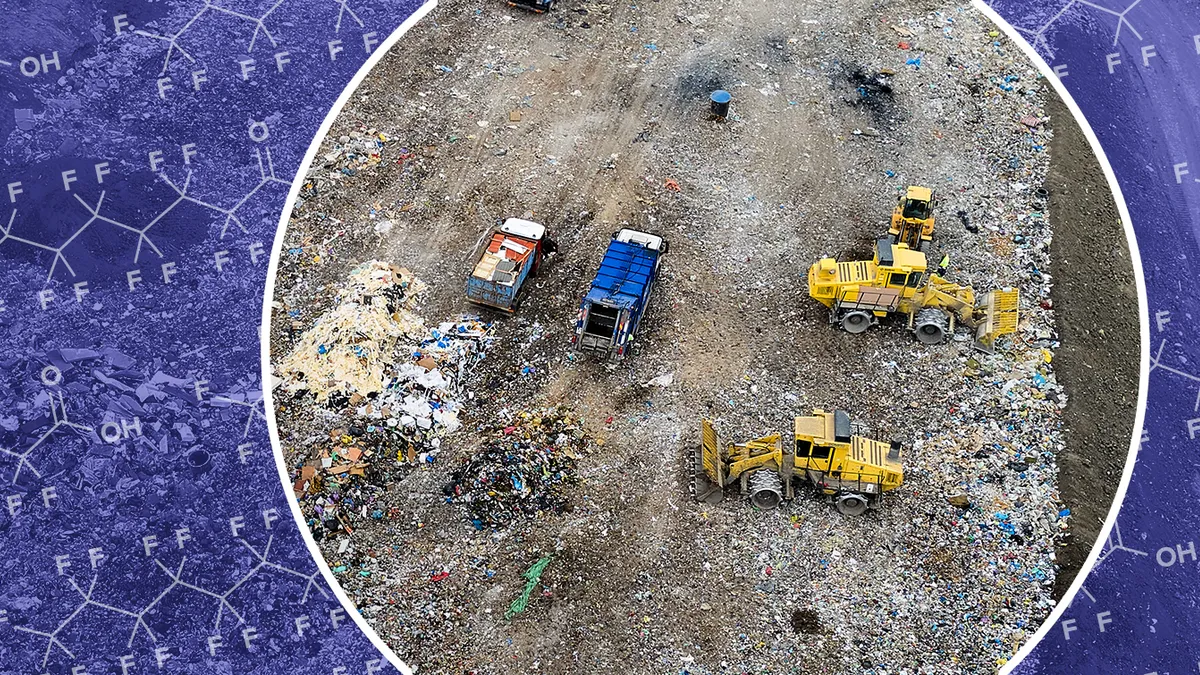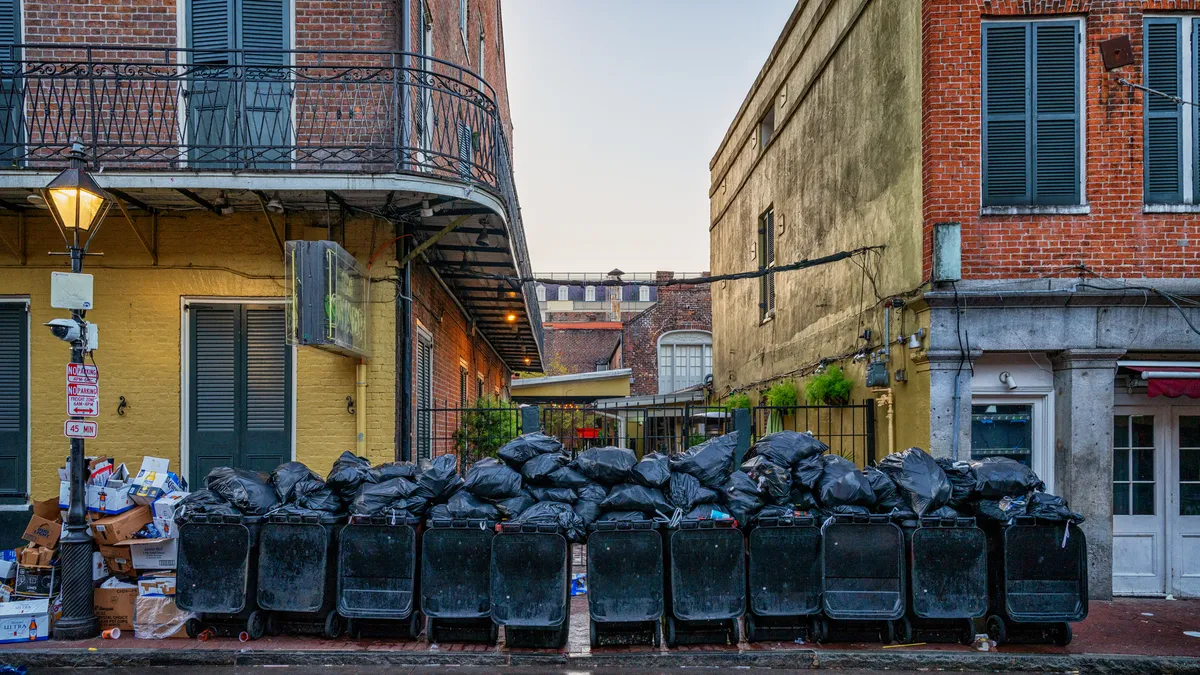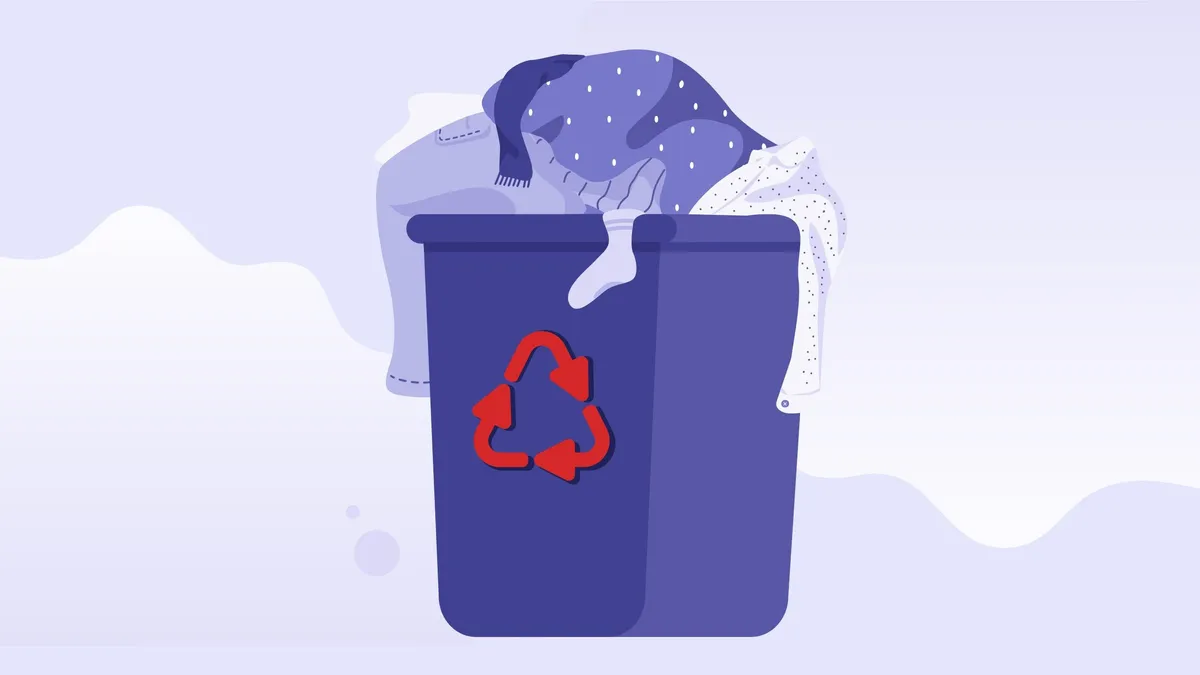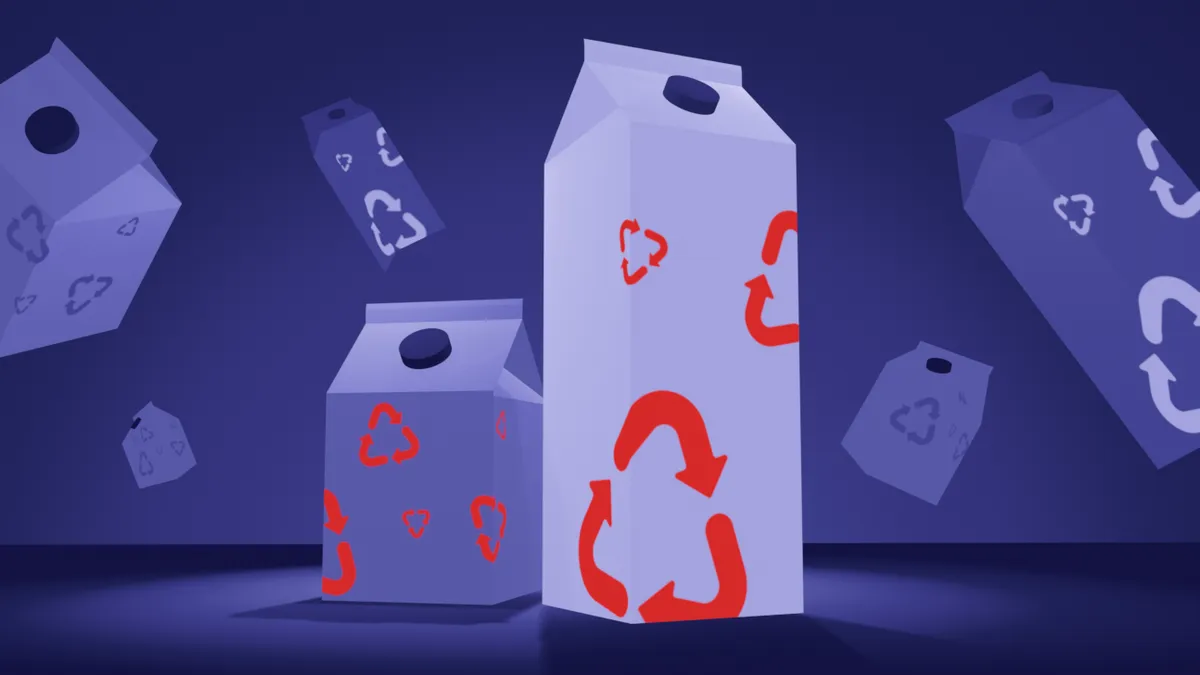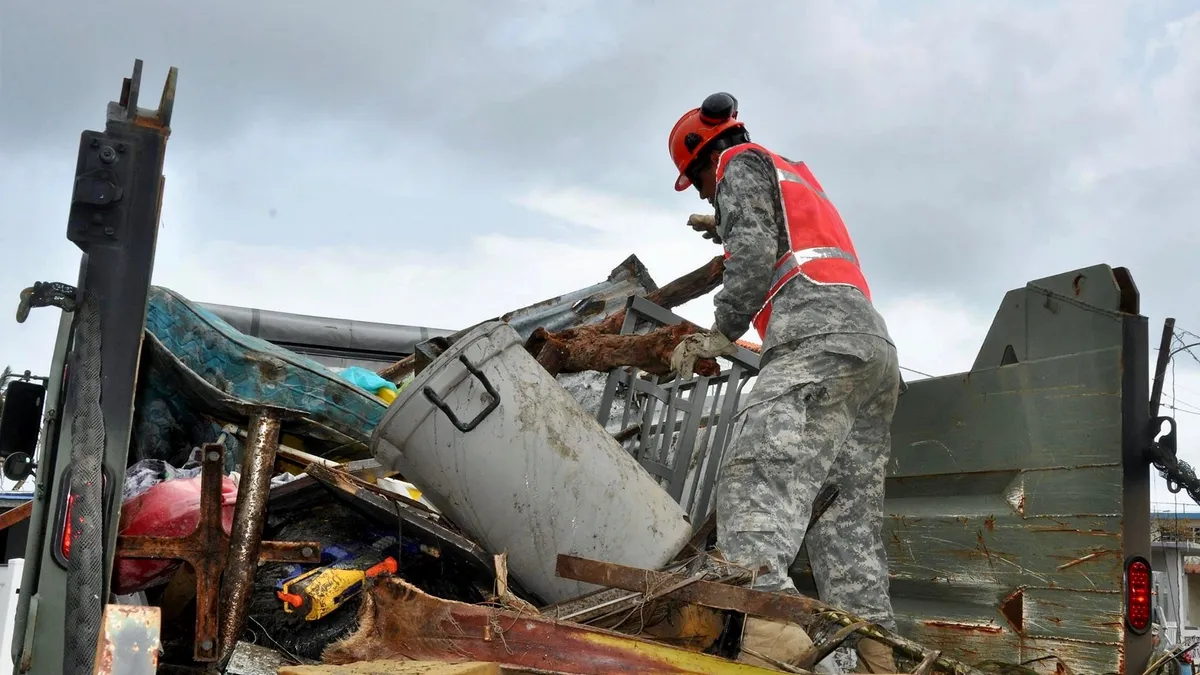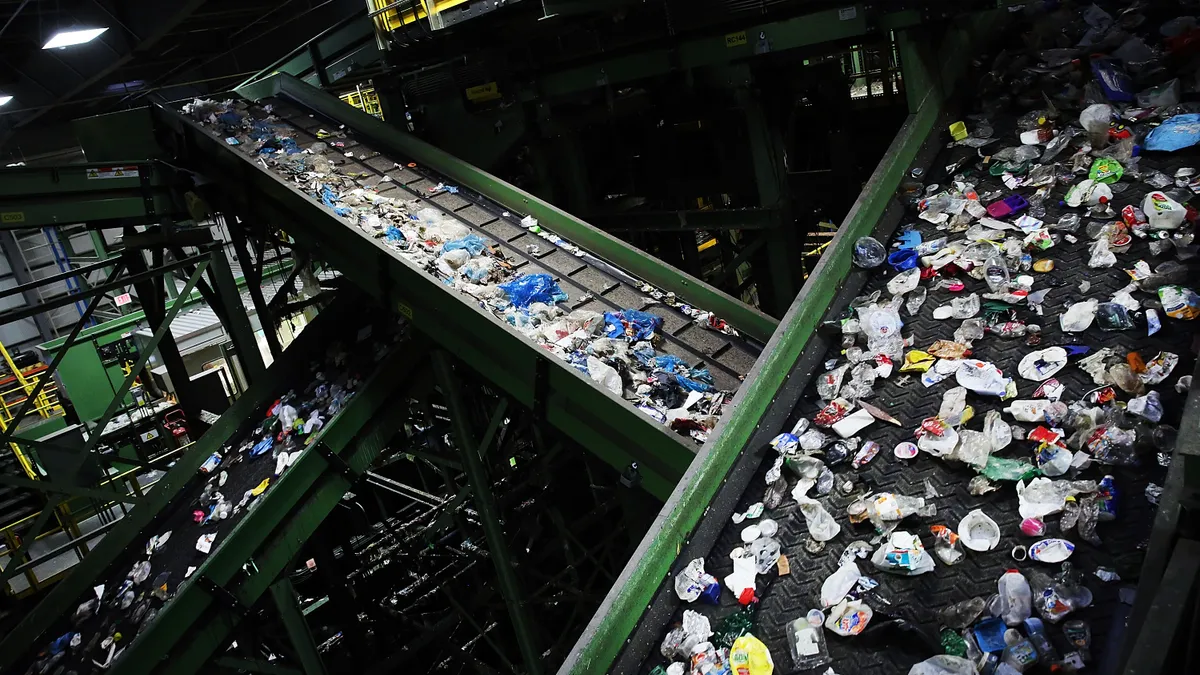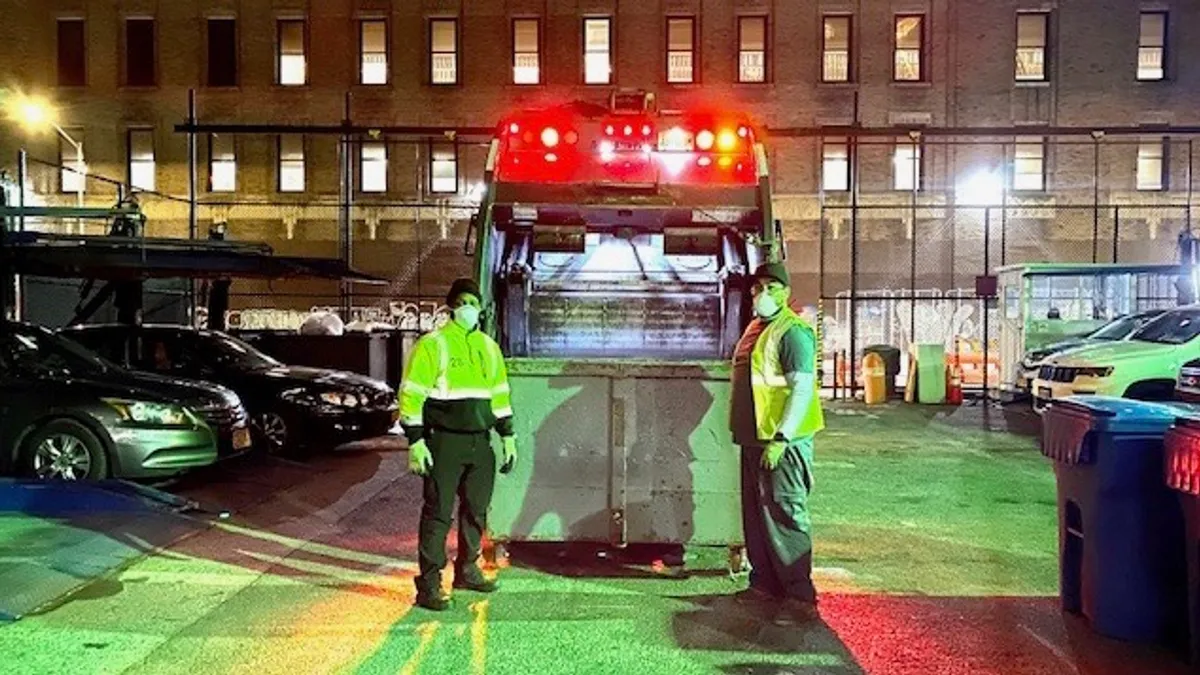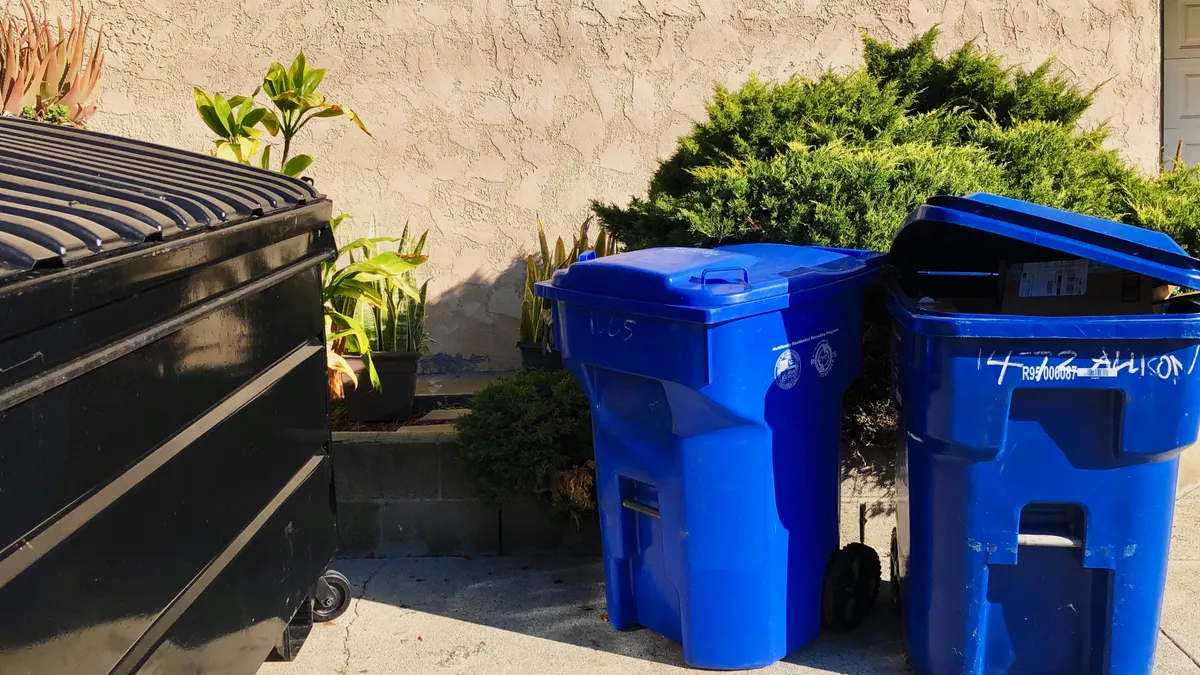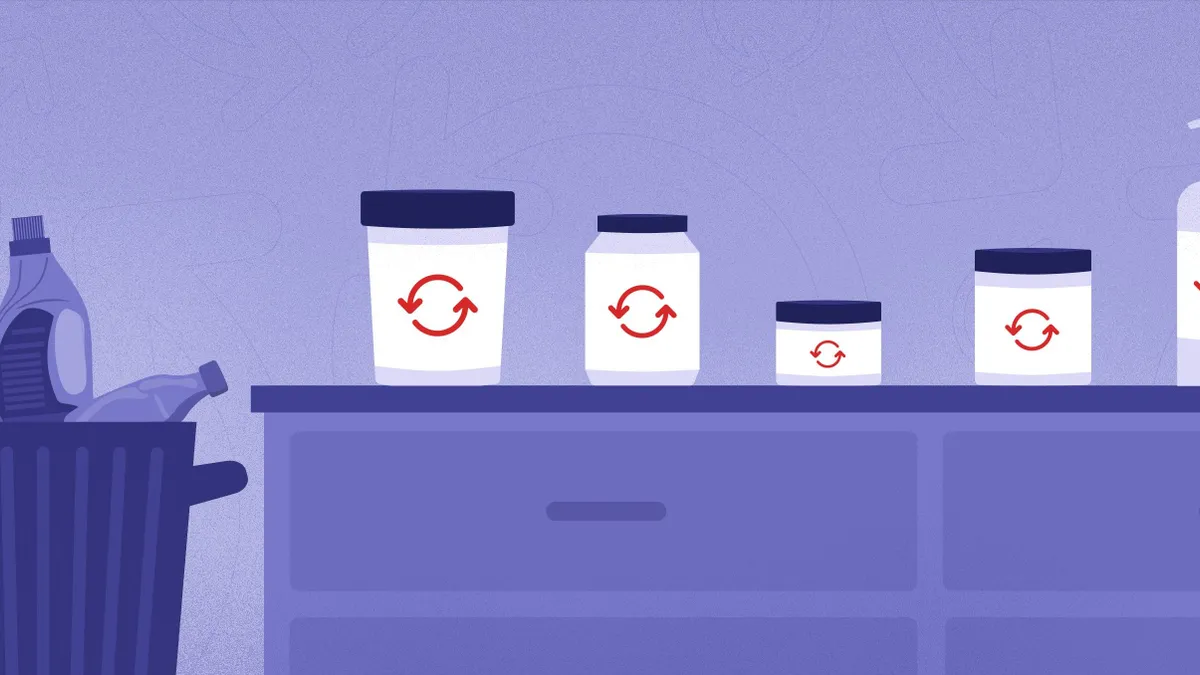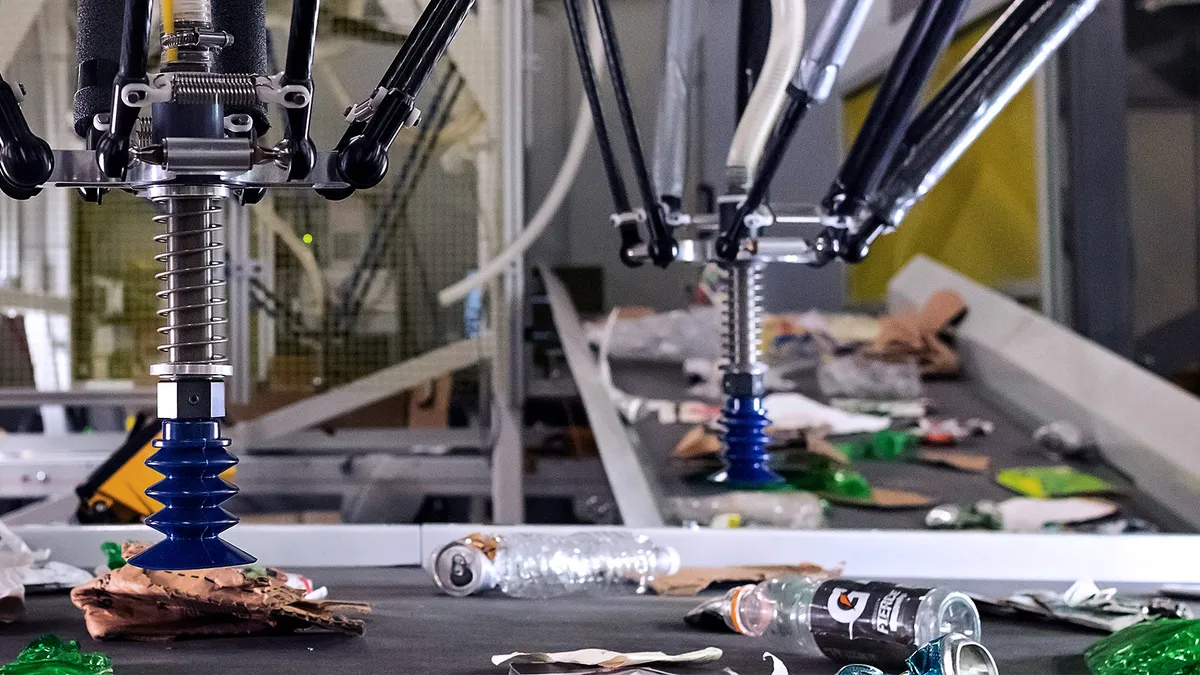Deep Dive: Page 4
Industry insights from our journalists
-
How local waste and recycling leaders are grappling with coronavirus-driven budget pressures
Lost revenues, rising operating expenses and limited federal aid have left local leaders looking for creative solutions. In some cases, the pandemic has also created opportunities to update their practices.
Leslie Nemo • Dec. 22, 2020 -
No 'green halo' for renewables: Veolia, First Solar, others tackle wind and solar environmental impacts
From manufacturing effects to the difficulty of recycling PV panels and turbine blades, solar and wind in particular can spur consequences the industries are trying to reduce.
Lynn Freehill-Maye • Dec. 18, 2020 -
US waste and recycling sector faces mounting risks and opportunities from climate change
As the industry increasingly recognizes its contribution to climate change and sees business opportunities in potentially mitigating those effects, the sector could be at a notable inflection point in the years ahead.
Cole Rosengren • Nov. 18, 2020 -
Diversity efforts taking shape at waste industry's big companies, but serious work remains
Public companies are increasing their focus on diversity and inclusion, from the frontlines to the boardroom, following national attention on racism. Nearly 74% of sector executives or senior managers are White males, per federal data.
Cole Rosengren • Nov. 2, 2020 -

 Photo illustration by Danielle Ternes/Waste Dive; photograph by Svanblar and Luka Banda via Getty Images
Photo illustration by Danielle Ternes/Waste Dive; photograph by Svanblar and Luka Banda via Getty Images
Election 2020: Climate policy faces a tough road through Congress regardless of electoral outcomes
A Democratic Senate will attempt to pass Joe Biden's clean energy standard in the face of an expected Republican filibuster, while bipartisan support exists for more R&D spending on carbon-cutting technologies.
Matthew Bandyk • Oct. 26, 2020 -
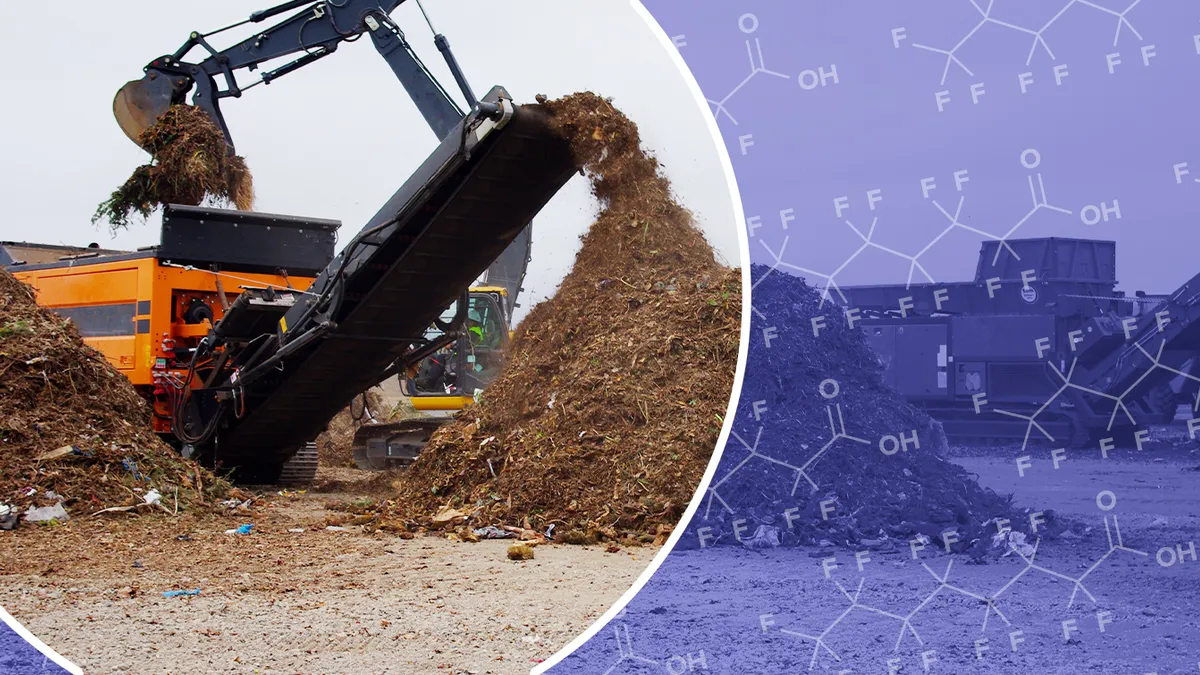
 Photo illustration by Brian Tucker/Waste Dive; Photograph by Philip Rozenski via Getty Images/Waste Dive
Photo illustration by Brian Tucker/Waste Dive; Photograph by Philip Rozenski via Getty Images/Waste Dive
'We can never get to zero': Organics recyclers face hard choices in responding to PFAS contamination
Composting and biosolids stakeholders worry regulations will decimate their industry, while environmental and health groups say action is critical.
E.A. Crunden • Oct. 19, 2020 -
Burning 'forever chemicals' emerges as industry flash point
Sending PFAS to incinerators is drawing lawmaker scrutiny and public outcry, but some experts say it may be the only realistic solution.
E.A. Crunden • Oct. 19, 2020 -
Toxic PFAS waste that lasts 'forever' poses financial, logistical challenges for landfills
Some worry PFAS could have National Sword-level implications for landfills. Stakeholders are aiming to avoid blame for contamination, while seeking out solutions to address the mounting crisis.
E.A. Crunden • Oct. 19, 2020 -
Calls for e-cigarette legislation increase amid growing fire hazard to waste and recycling industry
The proliferation of vape pens for nicotine and cannabis is the latest example of how embedded lithium-ion batteries are creating a safety risk for the sector. Advocates hope national and state policy proposals can change that.
Katie Pyzyk • Sept. 22, 2020 -
Loop's quest for reuse dominance has only gotten more ambitious during the pandemic
Some refill systems took a hit due to initial virus concerns, but the TerraCycle-backed platform's sales rose. Now, CEO Tom Szaky could be poised to set new sanitary standards and gain market share for years to come.
Karine Vann • Aug. 19, 2020 -
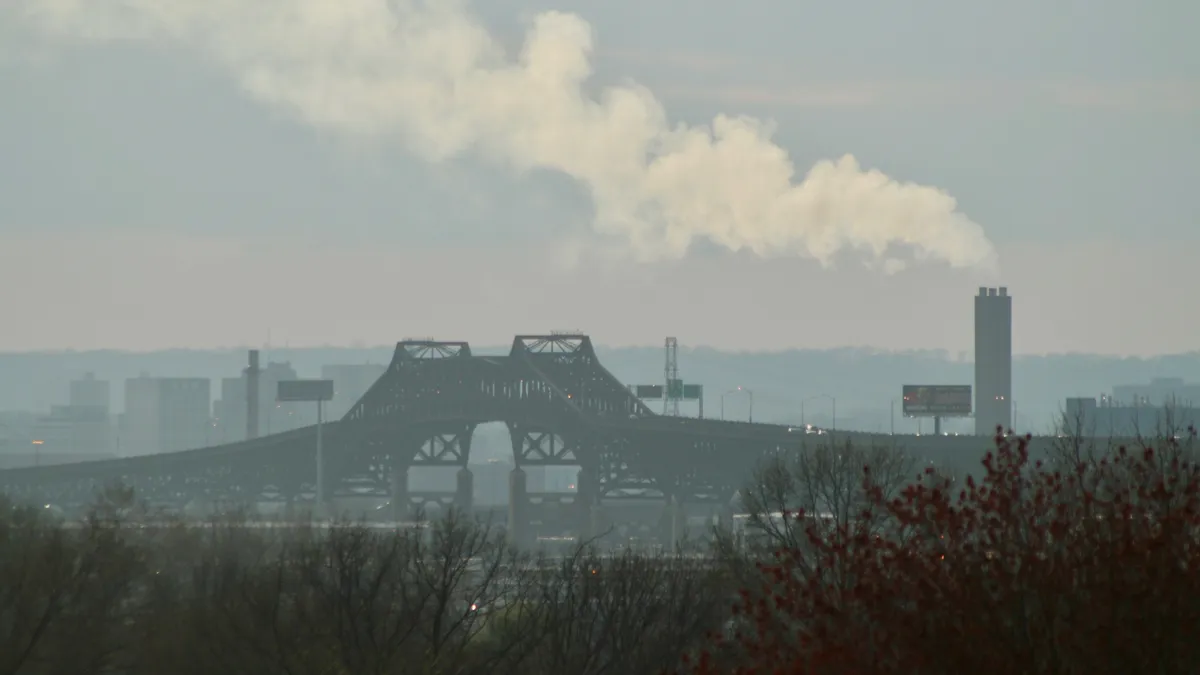
 The image by Kai Schreiber is licensed under CC BY-SA 2.0
The image by Kai Schreiber is licensed under CC BY-SA 2.0
New Jersey governor signs landmark environmental justice bill with big permit implications
The long-anticipated legislation had key backing from community groups. Despite some business opposition and industry trepidation, waste and recycling stakeholders also expressed support.
E.A. Crunden • Updated Sept. 18, 2020 -
Renewed interest in automated side loaders driven by pandemic concerns, persistent safety issues
ASLs have become increasingly popular with some predicting they could see more interest due to pandemic safety concerns. But tighter capital budgets may be a short-term challenge.
Leslie Nemo • Updated July 23, 2020 -
Risk and race concerns fuel ongoing debate around hazard pay during pandemic
Sanitation workers have held numerous strikes and demanded concessions including hazard pay, frequently linking their fight to movements like Black Lives Matter. But the issue remains a contentious one for the waste industry.
Cole Rosengren and E.A. Crunden • July 9, 2020 -
Can textile recycling be the next 'zero waste' frontier?
Clothes comprise a notable chunk of the waste stream, and can have valuable second lives, but market dynamics are complex. Recent pandemic disruptions haven't helped.
Karine Vann • June 16, 2020 -
Connecticut policy to limit landfilling faces pivotal moment as major WTE project stalls
An aging RDF facility that handles one-third of Connecticut's waste could begin exporting to out-of-state landfills unless an agreement can be reached between the local authority, developer and state officials in less than three months.
Cole Rosengren • June 11, 2020 -
Carton manufacturers invested big in attaining 'recyclable' status, but can they sustain it?
By funding education, sorting technology and end markets, the industry-backed Carton Council earned highly-sought federal recyclability status. Yet some MRFs and governments question if this packaging is worth the effort.
Leslie Nemo • Updated May 13, 2020 -
Puerto Rico's yearslong debate over WTE continues as the island's landfill issues mount
After a proposed incinerator project stalled in 2018, the territory's long-term plan remains uncertain as noncompliant landfills are reaching capacity. Meanwhile, recycling programs and waste reduction efforts are still evolving.
Genevieve Glatsky • May 1, 2020 -

 "200323-Z-NI803-0053". Retrieved from Matt Hecht.
"200323-Z-NI803-0053". Retrieved from Matt Hecht.
Pandemics were not part of most contingency plans, but waste and recycling industry proving resilient
Precautions previously in place for industry disruptions did not account for a coronavirus-induced economic disruption. Companies and public sector consultants discuss what's next more than a month in.
Cole Rosengren and E.A. Crunden • April 17, 2020 -
As some MRFs close during the pandemic, more adapt and carry on
Social distancing has become a challenge, PPE is in high demand and staffing availability is shifting. While MRFs in some states have closed, the industry's biggest residential recyclers report their facilities are still largely operational.
Cole Rosengren • April 8, 2020 -
Uncharted waters: Waste and recycling companies adapting to the coronavirus economy
Commercial volumes are down dramatically in many markets, employee hours are being cut and contract terms are tested. How service providers respond could have lasting reputational and financial implications.
Cole Rosengren • March 31, 2020 -
How the REMADE Institute hopes to reshape manufacturing with recycling in mind
Grand plans of recyclability and reuse often fall short of real-life implementation. REMADE wants to close that gap, and quickly, with industry input along the way.
Leslie Nemo • Feb. 5, 2020 -
2020 could be the year of legislative boom – or bust – for national recycling policy
An influx of legislation in Congress aims to tackle problems facing the recycling industry amid rising public attention. The bills range widely in their industry backers and odds of success.
E.A. Crunden • Jan. 29, 2020 -
7 pressing questions for the waste and recycling industry in 2020
The year is shaping up to be a major one for the industry's future. We'll be digging into safety, corporate consolidation, climate commitments, recycling policy, organics, PFAS, politics and more.
Cole Rosengren and E.A. Crunden • Jan. 6, 2020 -
Can Loop disrupt society's packaging habit? Inside TerraCycle's grand experiment
The reusable shopping platform, which launched with big hype and is now eyeing retail, has already raised one key question in its early days: What are the true costs of convenience?
Karine Vann • Updated Dec. 23, 2019 -
Robots move in
More MRFs are turning to automation and advanced technology to fill gaps and boost efficiencies, especially in light of market changes, but a full replacement of human labor isn’t here yet.
Katie Pyzyk • Dec. 11, 2019

